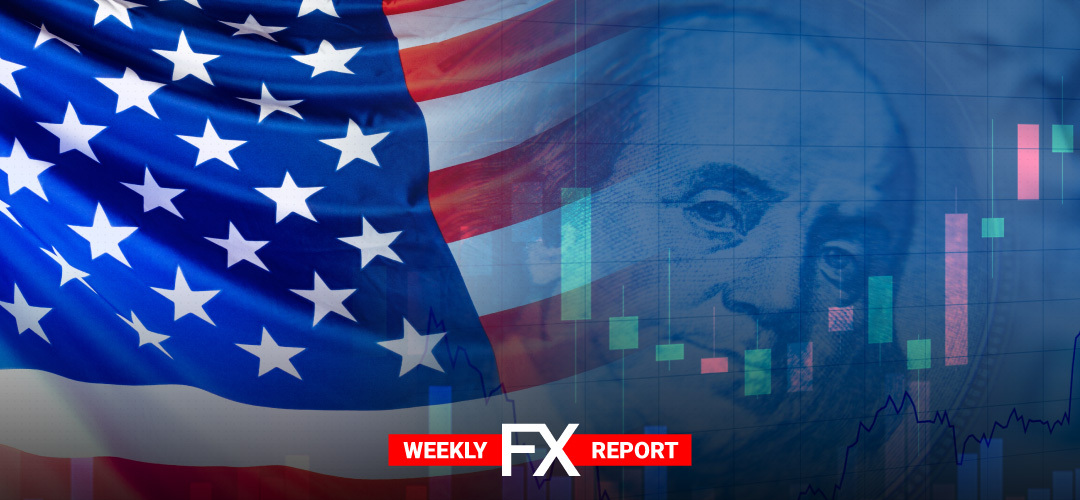As COVID-19 cases rise worldwide, investors remain in doubt about a quick financial recovery while the global economy could surrender without fresh stimulus.
Analysts predict that the world’s economy may be permanently altered by the pandemic. The International Monetary Fund lowered global GDP forecast for 2020. The IMF predicted global GDP will contract by 4.9% this year, downgrading its estimate of 3% from April.
A persistent increase in COVID-19 cases has put an apparent recovery in the labor market on stall speed too. Nearly a quarter of the global total coronavirus deaths have been in the United States, where unemployment claims unexpectedly rose last week. Some of the earlier steps to mitigate the financial impact are due to expire this month.
The U.S. Congress has yet to agree on fresh support. Investors hope the lawmakers will agree on a deal before the summer recess but there are still some sticking points.
Further, the U.S.-China relations have worsened following the closures of consulates in Houston and Chengdu. The diplomatic spat capped a dramatic escalation in tensions between the world’s two biggest economies. The US-Sino relations have plunged to their worst in decades over various disputes, from trade and technology to the COVID-19 pandemic.
After almost one hundred hours of tense negotiations a landmark EU agreement for a massive stimulus plan was reached. The EU deal includes 390 billion euros of grants along with 360 billion of low-interest loans. The deal will breathe life into the EU economies by reforms to help businesses rebound from the pandemic.
Britain and the European Union clashed last week over the chances of securing a free trade agreement. Brussels consider it unlikely, but London still hopes a deal could be reached in September. UK battles with the worst economic crisis in decades caused by the coronavirus.
LQDFXperts – Quick financial recovery remains in doubt
Sino-U.S. tensions along with concerns about the U.S. economy boosted the allure of safe haven assets and undermined the dollar.
EUR/USD jumped 2% last week, as the pair climbed to its highest level since September 2018. Doubts over the quick financial recovery and the U.S. economic outlook have started to weigh on the dollar. A surge in coronavirus cases will make it difficult for the U.S. economy to outperform its peers. The dollar index was down 1.3% on the week and had its fifth straight weekly decline. The euro continued its ascent after EU leaders agreed a 750 billion-euro fiscal stimulus plan last week. The common currency has gained 3.3% for the month so far.
GBP/USD posted strong gains last week, climbing 1.8%. The cable had its biggest weekly gain since the first week of June. Bullish markets and the broad weakness of the US dollar have helped the pound.
Dollar/yen sustained its sharpest loss since early June, with a decline of 0.8%. With the dollar’s role as safe haven in question, the Japanese yen strengthened, suggesting that investors are seeking safety elsewhere. It’s a busy week in Japan and the Bank of Japan.
AUD/USD posted its strongest weekly gain since early June, climbing 1.5%. The streaking Australian dollar punched above the 71 level for the first time since February 2019. AUD/USD has positive momentum, as the pair has jumped 2.9% in July so far.
The Canadian dollar enjoyed a strong week, as USD/CAD dropped by 1.3%, its sharpest decline since the first week of June.
Gold soared to an all-time high, surpassing a peak touched in September 2011. Sino-U.S. tensions boosted the allure of safe haven assets, especially those not tied to any specific country. Aggressive monetary easing around the world has also helped the yellow metal.
START TRADINGThe week ahead – GDP and FED in focus
The Federal Reserve meets on Tuesday and Wednesday. It could confirm recent hints about the benefits of an average inflation target, allowing rates to stay lower for longer. The upcoming week features GDP and inflation numbers. US second-quarter growth will be in focus.
- On Wednesday (29.07) investors are waiting for the Federal Reserve Rate Decision. Investors will be keeping a careful eye, but they do not expect any change in the benchmark rate of 0.25%.
- On Thursday (30.07) investors turn their attention to the US Unemployment Claims. After a disappointing read last week of 1.41 million, unemployment claims will probably rise, with a forecast of 1.45 million. Also, US Advance GDP and German Preliminary CPI and GDP will draw investors’ attention.
- Friday (31.07) is overflowed with data. Investors are waiting for: French Flash GDP, German Retail Sales, Eurozone Inflation, Canada GDP, and US Services PMI.
France’s economy slipped by 5.8% in Q1 and is projected to plunge by 15.2% in Q2. Eurozone CPI posted a gain of 0.3% in June and no change is expected in the initial July reading. Canada’s GDP declined 11.6% in April. However, there have been signs that the economy is recovering and the May forecast stands at 3.3%.
Follow this week’s economic calendar.
PLEASE NOTE The information above is not investment advice.
Sources: Reuters, CNBC, BBC, The Guardian
